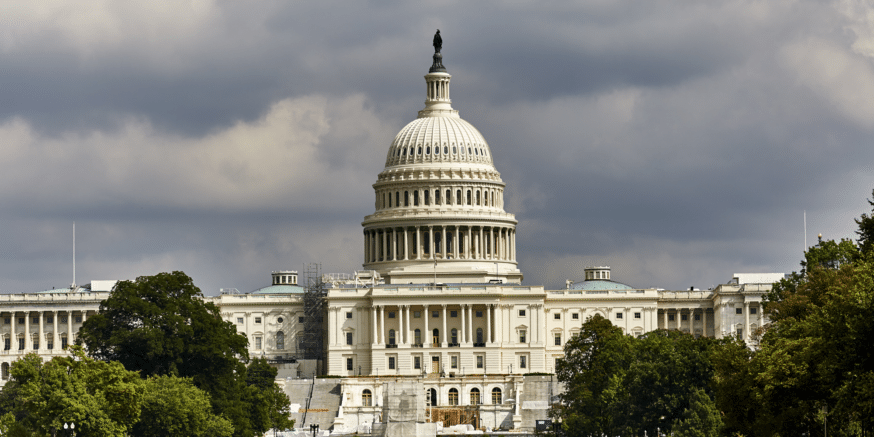TLDR
- House Republicans passed three crypto bills after a record 10-hour procedural vote on Wednesday night
- Republican hardliners held out until leaders agreed to add CBDC ban to defense spending bill
- The GENIUS Act (stablecoin regulation) could get final vote Thursday and go to Trump’s desk
- The CLARITY Act (crypto market structure) may get voted on next week
- Final vote was 217-212 after Republicans reached deal on anti-CBDC provisions
The US House of Representatives moved forward with three major crypto bills after a marathon procedural vote that lasted over 10 hours. The vote ended late Wednesday night with a narrow 217-212 passage.
Republican hardliners from the House Freedom Caucus initially refused to support the measure. They demanded guarantees that a ban on central bank digital currencies would pass Congress.
House Majority Leader Steve Scalise announced a compromise solution on Wednesday. Republicans will now attach the CBDC ban to the National Defense Authorization Act, a must-pass defense spending bill.
The three bills include the GENIUS Act for stablecoin regulation, the CLARITY Act for crypto market structure, and the Anti-CBDC Surveillance Act. President Trump wants to sign the GENIUS Act before the weekend.
Attaching our Anti-CBDC Surveillance State Act to the NDAA will ensure unelected bureaucrats are NEVER allowed to trade Americans’ financial privacy for a CCP-style surveillance tool. @POTUS has made it clear: our legislation is a key piece of our America First agenda, and we…
— Tom Emmer (@GOPMajorityWhip) July 17, 2025
Vote Drama Unfolds
The procedural vote began at 1:19 PM ET on Wednesday and didn’t end until 11:04 PM ET. This broke the House’s previous record for longest vote, which was set earlier this month during Trump’s tax bill vote.
Republican Representative Keith Self initially opposed the GENIUS Act. He claimed it “will allow a back door to a CBDC” despite language in the bill stating it shouldn’t expand Federal Reserve authority.
Representative Marjorie Taylor Greene was the only Republican to vote with Democrats against the measure. Her vote stood out in what was otherwise a party-line procedural vote.
The vote originally failed on Tuesday when the House Freedom Caucus voted against advancing to debate. Wednesday’s vote was a do-over attempt to clear the procedural hurdle.
CBDC Ban Strategy
Republican leaders had promised hardliners they would include a CBDC ban in the NDAA defense bill. This bill has historically always passed both chambers of Congress.
Representative Tim Burchett, who initially voted against the bills, posted a video on X explaining the negotiations. He said the deal involved moving the CBDC ban to the NDAA instead of tying it to the crypto bills.
Speaker Mike Johnson had suggested the Senate wouldn’t pass the bills if they were all tied together. This pushed Republican leaders to pursue the separate NDAA strategy.
The compromise allows the crypto bills to move forward while ensuring CBDC ban supporters get their legislation in a must-pass bill.
Next Steps
The House will vote on the GENIUS Act as soon as Thursday according to reports. If it passes, the bill goes directly to Trump’s desk for his signature.
The CLARITY Act may receive its final vote next week, though Speaker Johnson said timing could shift to Friday. Both bills are expected to receive bipartisan support.
A “Dear Colleague” letter sent to House Democrats urged them to vote against the underlying bills. The letter questioned Republican ability to implement the legislation given their procedural difficulties.
The GENIUS Act regulates stablecoins while the CLARITY Act establishes market structure for digital assets. Both represent major crypto policy changes if signed into law.






